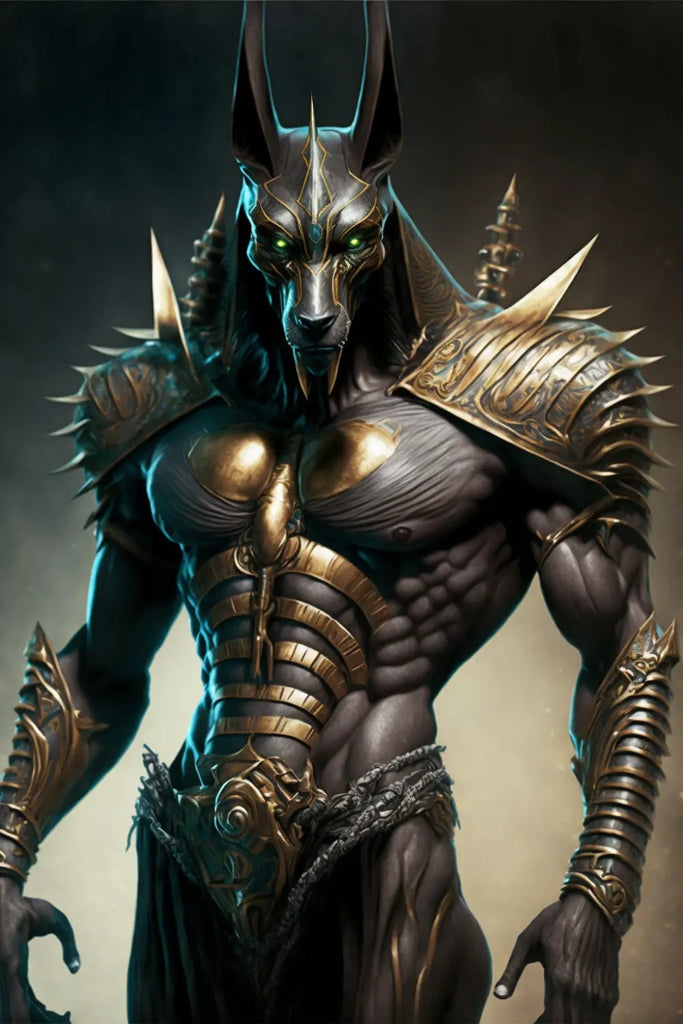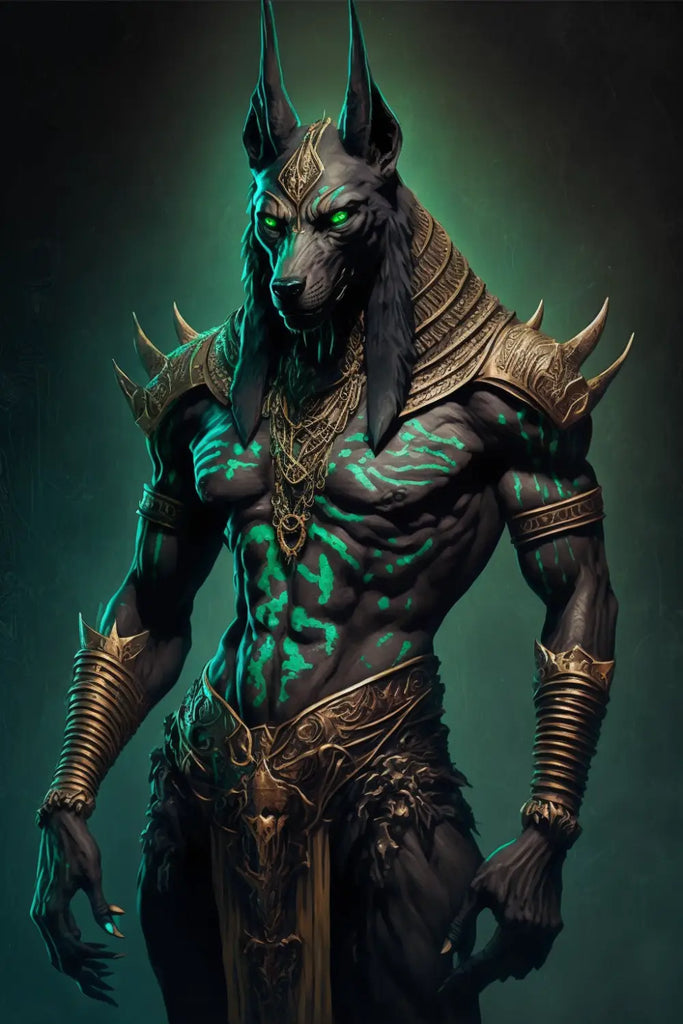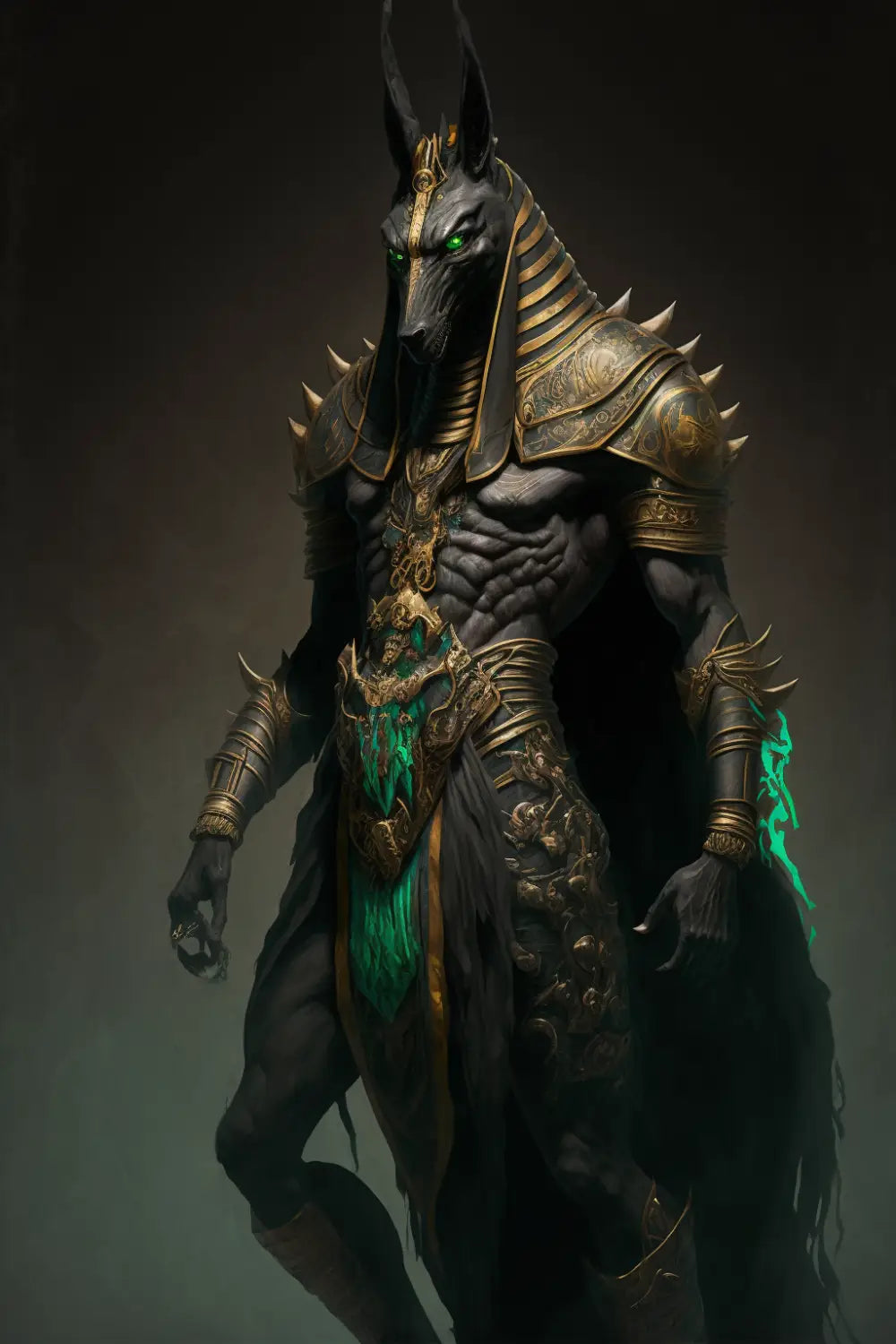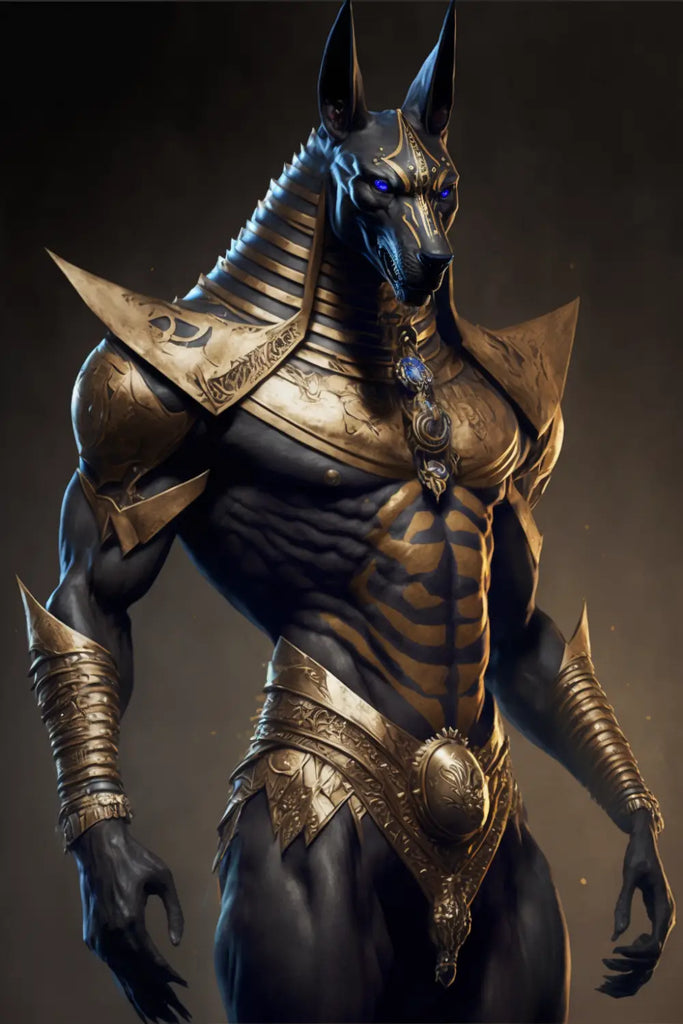In ancient times, the land of Egypt was ruled by powerful gods who held dominion over the mortal world. Among them, Anubis, the god of the afterlife, mummification, and judgment, held a special place. Though the Egyptians revered him, they also feared him, for his wrath was as legendary as his benevolence. But a time came when Anubis's wrath would no longer be held in check, and he decided to conquer the very land that had worshipped him for centuries. This is the tale of Anubis Unleashed, a legendary battle for the soul of Egypt.
It all began when Anubis, as the guardian of the underworld, sensed a disturbance in the balance of Ma'at – the cosmic order that governed the universe. He felt the hearts of the people of Egypt were growing heavy with corruption and greed. The priests, once devoted servants of the gods, had become selfish and power-hungry. The people were turning away from the gods, their faith waning with each passing day.

Anubis, fearing the consequences of this spiritual decay, sought counsel from the other gods. Ra, the sun god, had grown distant and weary, his attention focused on the heavens. Isis, the goddess of magic, was lost in her own pursuits of knowledge. Horus, the falcon-headed god of kingship, was embroiled in his own struggles for power. No god seemed willing or able to help Anubis restore balance to the land.
Frustrated and angered, Anubis decided that he would take matters into his own hands. If the people of Egypt no longer respected the gods, he would remind them of their power and authority. He would conquer Egypt and force the people to submit to his rule. With his heart set on the conquest of Egypt, Anubis began to prepare for the coming battles.
The god of the afterlife gathered his army, an imposing force of supernatural creatures and spirits that would strike fear into the hearts of mortals. Jackal-headed warriors, undead legions, and spectral beasts from the darkest corners of the underworld marched at his command. They were an unstoppable force, born from the darkness and primed to conquer the land of the living.

As word of Anubis's approaching army spread, panic gripped the people of Egypt. They prayed to the gods for protection, but their prayers went unanswered. Despairing, they turned to the pharaoh, who rallied the strongest warriors of the land to face the coming onslaught. He called upon Egypt's greatest generals, strategists, and heroes to lead the charge against Anubis's forces. The stage was set for a clash of titans, the fate of Egypt hanging in the balance.
The first skirmishes were brutal and bloody, with the mortal armies of Egypt struggling to hold back the tide of Anubis's supernatural forces. The jackal-headed warriors were fierce and ruthless, cutting down all who dared to stand against them. The undead legions were relentless, rising again and again to fight despite grievous wounds. And the spectral beasts sowed chaos and terror, striking from the shadows and leaving death in their wake.
Yet the people of Egypt were not without their own formidable warriors. The great general Mentuhotep, a master tactician, used his knowledge of the land to stage daring ambushes and counterattacks. The hero Isetnofret, wielding twin khopesh swords, cut a swath through the ranks of the undead. And the sorceress Nefertari, versed in the arcane arts, called upon her magic to bind and banish the spectral beasts.

As the battles raged on the tide of war ebbed and flowed, with neither side able to gain a decisive advantage. The land of Egypt became a battleground, its once-fertile fields stained with the blood of mortals and immortals alike. As the conflict wore on, the people began to question if their gods had abandoned them or if their own actions had led to this terrible fate.
The turning point came when Nefertari, the sorceress, sought out the goddess Isis in a desperate attempt to find a way to stop Anubis's relentless advance. Using her arcane knowledge, she opened a portal to the realm of the gods and implored Isis to intervene.
Isis, moved by Nefertari's courage and devotion, took pity on the people of Egypt. She revealed to the sorceress a powerful spell that could bind Anubis and weaken his forces. However, the spell required a great sacrifice – the life of one who had been devoted to the gods, but had been corrupted by the darkness within their own heart.

Nefertari knew at once who the sacrifice must be. The high priest Amenemhat, once a devoted servant of the gods, had succumbed to the lure of power and greed, betraying the very gods he had sworn to serve. Nefertari and her fellow heroes set out to confront the high priest and claim his life in order to save Egypt.
As Anubis's forces closed in on the capital, Nefertari and her companions fought their way to the heart of the city, where they found Amenemhat in the great temple. The high priest, realizing his fate, did not resist, but his death weighed heavily on the heroes who had been forced to take his life.
With the sacrifice made, Nefertari cast the spell given to her by Isis. A blinding light enveloped Anubis and his army, binding them in chains of celestial energy. The god of the afterlife, stripped of his power and control over his forces, was forced to retreat back to the underworld, his dreams of conquest shattered.
In the aftermath of the conflict, the people of Egypt realized the error of their ways. They had allowed their hearts to be corrupted by greed and ambition, straying from the path of righteousness laid down by the gods. As they rebuilt their shattered cities and mourned their fallen heroes, they vowed to never again allow such darkness to take hold.
Anubis, humbled by his defeat, returned to his duties as the guardian of the afterlife, his wrath tempered by the knowledge that the people of Egypt had learned their lesson. And so, the land of Egypt emerged from the shadow of war, its people determined to restore the balance of Ma'at and honor the gods who had saved them from annihilation.
















